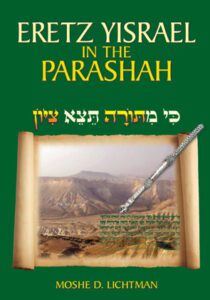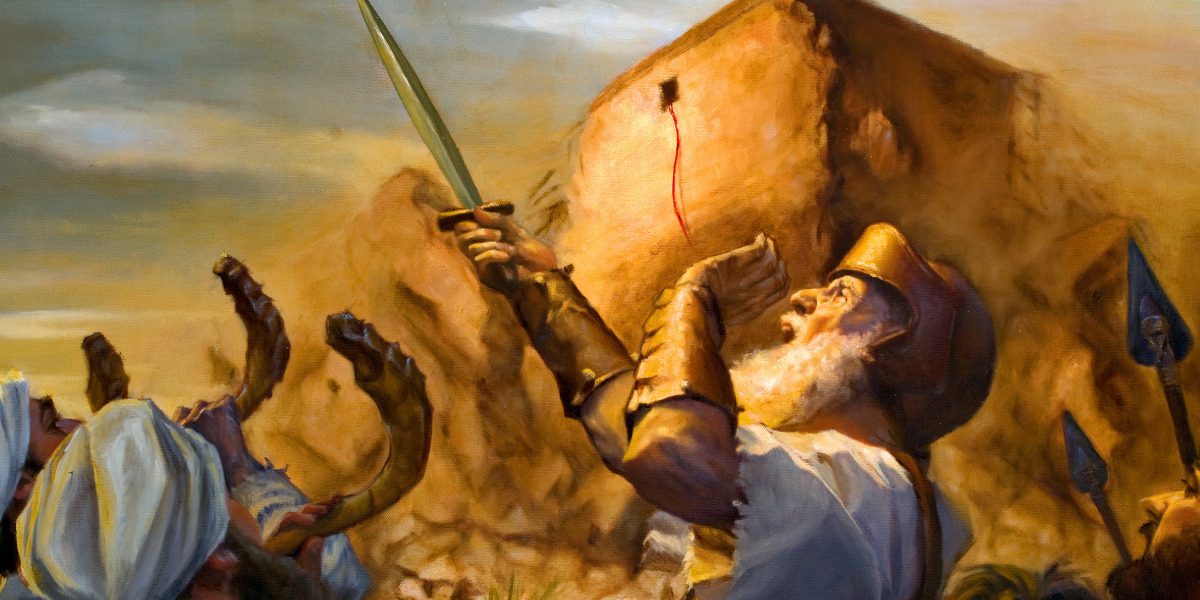PREPARING TO CONQUER THE LAND
by Rabbi Moshe D. Lichtman

(more of Rabbi Lichtman’s writings and book appear at: https://toratzion.com/
The Book of BeMidbar – also known as Sefer HaPekudim (Numbers) – opens with the
census taken by Moshe and Aharon of all the Tribes of Israel. The Torah dedicates over fifty
verses to what seems to be trivial statistical data. Why is it important for future generations to
know the date of the census (1 Iyar), its results, who was counted (ages 20-60), and so on?
Rashi comments:
Since [HaShem] loves them, He counts them all the time. When they left Egypt He
counted them; when [some of] them died [as a result of the Golden] Calf, He counted
them to know how many were left; [and now] when He was about to cause His
Shechinah to rest upon them, He counted them. The Mishkan was erected on the first of
Nissan, and He counted them on the first of Iyar.
This answers the general question as to why it was necessary to count them at all. It also
explains the importance of the date, but other questions remain unresolved. The Rashbam
(Rashi’s grandson) – known as a pashtan par excellence – gives a more pragmatic
explanation:
TAKE A COUNT OF THE ENTIRE CONGREGATION (1:2), because they now had to go to Eretz
Yisrael, and twenty-year-old men are fitting to go out to battle in the army. For on the
twentieth day of that month [Iyar], the cloud ascended [indicating that it was time to
travel], as it is written in Parashat BeHa’alotcha (10:11); and there it says, We are
traveling to the place [of which the Lord has said, “I will give it to you”] (10:29).
Therefore, the Holy One Blessed be He commanded that they be counted at the
beginning of the month.
Let us not forget that if not for the Sin of the Spies, the Jews would have entered the Land
immediately. Thus, says the Rashbam, this census was a way for the leaders to know how
many soldiers they had at their disposal to conquer the Land. This answer gains added
strength when we consider the fact that the Levites were not included in the census (see 1:49-
50). Since they filled a special role in the sacred service in the Mishkan, they were exempt
from military service.
The Ramban takes a similar approach:
Perhaps we could also say that this was consistent with the practice of kings who go out
to war. For at that time, [the Jews] were ready to enter the Land and do battle with the
Amorite kings… as it says, We are traveling to the place… Therefore, Moshe and the
Princes needed to know the number of soldiers… for the Torah does not rely on
miracles – that one person should pursue a thousand… (Ramban on 1:45)
I would like to conclude with the Sforno’s comments, because I believe they shed light on
current events. He, too, understands that the census was in preparation for entering the Land,
but he adds a little twist:
TAKE A COUNT, in order to arrange them, so that they could enter the Land immediately,
each man according to his banner, without war. Rather, the nations would have cleared
out before [the Jews], as some did… [Accordingly], Chazal state, “The Girgashites left
on their own volition.” But because of the Sin of the Spies, the seven nations continued
to do evil for forty years, and it became necessary to destroy them. (Sforno on 1:2)
In other words, had the Jews eagerly entered the Land, instead of despising it (which was
the Sin of the Spies), HaShem would have “taken care” of our enemies Himself. The longer
we tarried in the desert, however, the more brazenfaced they became and the more difficult it
became to get rid of them.
The same is true today. The more we show our enemies that we are unwilling to take hold
of our rightful possession, the more they believe that it is theirs, and the more difficult it is to
defeat them. Just this week, we celebrated Yom Yerushalayim. The victory of the Six Day
War was probably the closest thing to a Divine conquest that the world has seen in two
thousand years. Had we taken the unprecedented opportunity that was given to us and settled
every inch of our historic Homeland, our enemies would have cleared out on their own,
because they would not have had any other choice. But since we despised the Land, leaving
vast expanses desolate, we now suffer the consequences.
Hopefully, we will see great miracles once again in the very near future. When that
happens, let us not repeat the same mistake for the umpteenth time. Please!!






